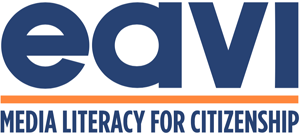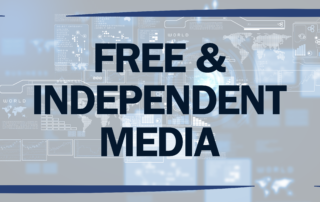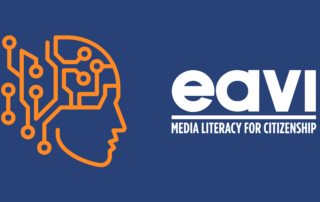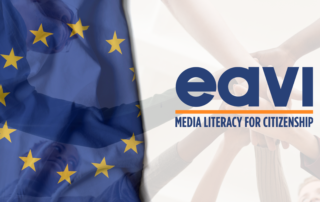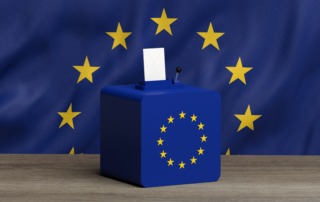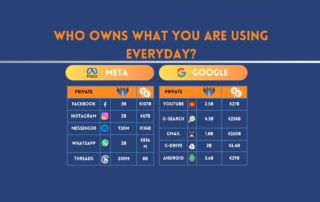The European Media Freedom Act: A Crucial Step Taken Towards Media Literacy
Independent media play a vital role in creating a public discourse, influencing public opinion, and ensuring accountability of those in positions of authority. It is considered as “a public watchdog” and “a key pillar of democracy. Therefore, the EU places significant emphasis on it and stands as a strong advocate for the existence of free and independent media on an international level. Simultaneously, there are growing concerns within the EU. The Commission has been closely monitoring these developments using tools such as the Rule of Law Report and the Media Pluralism Monitor. The [...]
Gender Representations in Media: The Importance of Media Literacy
In their article titled “Gender and Media Representations: A Review of the Literature on Gender Stereotypes, Objectification and Sexualization”, Santoniccolo and his colleagues argue that media representations may create certain sociocultural pressures, such as restrictive gender roles. Gender-based portrayals in media are still highly common, despite social and legal advancements in the field of civil rights. The importance of media in shaping individuals' beliefs, attitudes, and perceptions of gender has been extensively studied and well-documented. Numerous research endeavours consistently affirm the significant influence of media use on gender beliefs. Meta-analyses conducted over [...]
Parenting in the Digital Age: Introduction to Digital Parenting
In the digital age, parenting extends beyond the physical realm into the interconnected grand world of technology and the internet. Digital parenting involves guiding and supporting children as they navigate the online world. It's about being aware of what children are exposed to online, teaching them about the responsible use of technology, and helping them understand the benefits and risks of the digital environment. This approach is crucial in an era where digital literacy is as important as learning to read and write. Understanding the importance of digital parenting is essential for all [...]
EAVI’s Pioneering Role in Advancing Media Literacy in the EU
At EAVI, we are pleased to observe that the Communication from the Commission dated February 2023, titled “Guidelines pursuant to Article 33a(3) of the Audiovisual Media Services Directive on the scope of Member States' reports concerning measures for the promotion and development of media literacy skills”, acknowledges the studies conducted by EAVI. These studies are referred to as useful resources to assist the Member States in evaluating media literacy levels. We appreciate the recognition of our efforts in contributing to the advancement of media literacy initiatives. Indeed, media literacy is an important subject [...]
The Threat of AI-Generated Disinformation to European Elections and Democracy
In view of the elections that will be held in 2024 in the EU and other parts of the world including the US and UK, there are various challenges to democratic processes as technological advancements are on the rise. It is argued that electoral periods and times of political crisis serve as fertile ground for the production and dissemination of AI-generated content, heightening concerns about the impact on public perception and democratic processes. Recent instances have demonstrated the alarming potential of AI to enable the production of deceptive narratives, with such disinformation finding [...]
AI Hallucination: When AI Makes Things Up
The word “hallucinate” was announced as the word of the year by the Cambridge Dictionary in 2023. It means “to seem to see, hear, feel, or smell something that does not exist, usually because of a health condition or because you have taken a drug”. The term "hallucination" originates from the Latin word "alucinari," meaning to wander in the mind. Yet, the Cambridge Dictionary added another definition for the word that signifies the emergence of a new phenomenon: “When an artificial intelligence hallucinates, it produces false information”. This indicates that AI may have [...]
The Relevance of Chomsky’s Media Theory in Today’s Digital Landscape: Media Ownership
In an era dominated by social media and big tech giants, the concentration of media ownership has become more important than ever. The infographic above depicts the ownership landscape of major platforms and reveals an interesting truth that media control lies in the hands of a few, steering the narratives that reach billions of users worldwide. This phenomenon echoes the sentiments expressed by the famous linguist and philosopher Noam Chomsky in his ground-breaking media theory, specifically his first filter of the “Five Filters of the Mass Media,” the ownership. Chomsky’s media theory, often referred [...]
Data Literacy in the Age of Datafication: A Package to Understand How Digital Technology Treats Us
The complexity of technology, coupled with the emergence of datafication, presents new challenges for society to understand how the world works. Artificial intelligence and big data are just a few examples of the advanced technologies we have to deal with. However, both show the same trend, which is the increasingly important role of data in decision-making. Decision-making is now also automated. This process relies on technologies such as deep learning and the availability of large, real-time data to provide insight, and new knowledge to make policies. One of the easiest examples of the datafication [...]
Using Media Literacy to Fight Digital Fake News in Later Life: A Mission Impossible?
Media Literacy Training for Seniors to Fight Fake News The European Commission defines disinformation as “false or misleading content that is spread with an intention to deceive or secure economic or political gain,” whereas misinformation refers to the same kind of content shared without harmful intention, regardless of its consequences. Disinformation is commonly referred to as ‘fake news,’ and it seriously threatens the credibility of information sources and causes public harm on many layers. Media literacy training functions as a strong instrument used to combat the spread of false information by empowering citizens [...]
